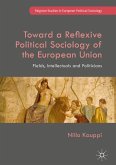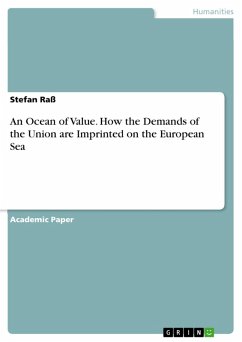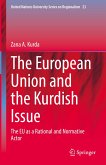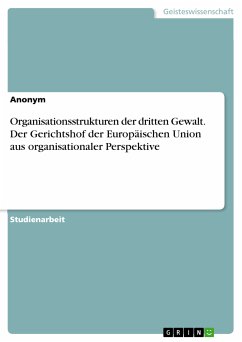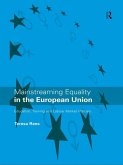Seminar paper from the year 2014 in the subject Sociology - Politics, Majorities, Minorities, grade: 1,7, Humboldt-University of Berlin, language: English, abstract: The fundamental task of this paper is to answer the question whether European identity exists. Since the beginning of the 21st century, being other or vanguard has become something normal, it is even modern to stand out and be perceived as different from the crowd. Every country's cultural landscape has become more various than it was ever before and this is due to processes of globalization, taking place all over the world. One cannot argue that this development has brought many advantages mostly in the areas of transportation, tourism, media and communication. It is now much easier than 50 years ago to travel, get to know other places and cultures and this fact has contributed for the spread of more broad-minded views on life. Another important and still on-going progress is the enlargement of the European Union, whose main intention is not only creating a universal single European market, but aims at building and strengthening a modern European community with its own identity. Expanding the EU means taking in new cultures with specific practices and lifestyles and this is one of the emblematic characteristics of the EU-multiculture. The aim of this paper is to investigate whether such an identity exists, do we actually need it so that we feel part of Europe and how the EU forms the concept of European identity.The first part of the paper will include definitions of the important concepts in order to achieve a better understanding of what exactly ,,Europe" is and how we define ,,identity". These are questions of increased difficulty, which remain without a definite answer and make the analysis of the EU and identity equally hard both on the expert and political level, as in the context of everyday life. The second part will concentrate on the main theories and opinions which investigate the problematic nature of the European identity, next a short empirical part will outline the public opinion of the member states of the EU concerning European identity, specific example will be given with two Post-Soviet countries, namely Bulgaria and Poland.
Dieser Download kann aus rechtlichen Gründen nur mit Rechnungsadresse in A, B, BG, CY, CZ, D, DK, EW, E, FIN, F, GR, HR, H, IRL, I, LT, L, LR, M, NL, PL, P, R, S, SLO, SK ausgeliefert werden.



